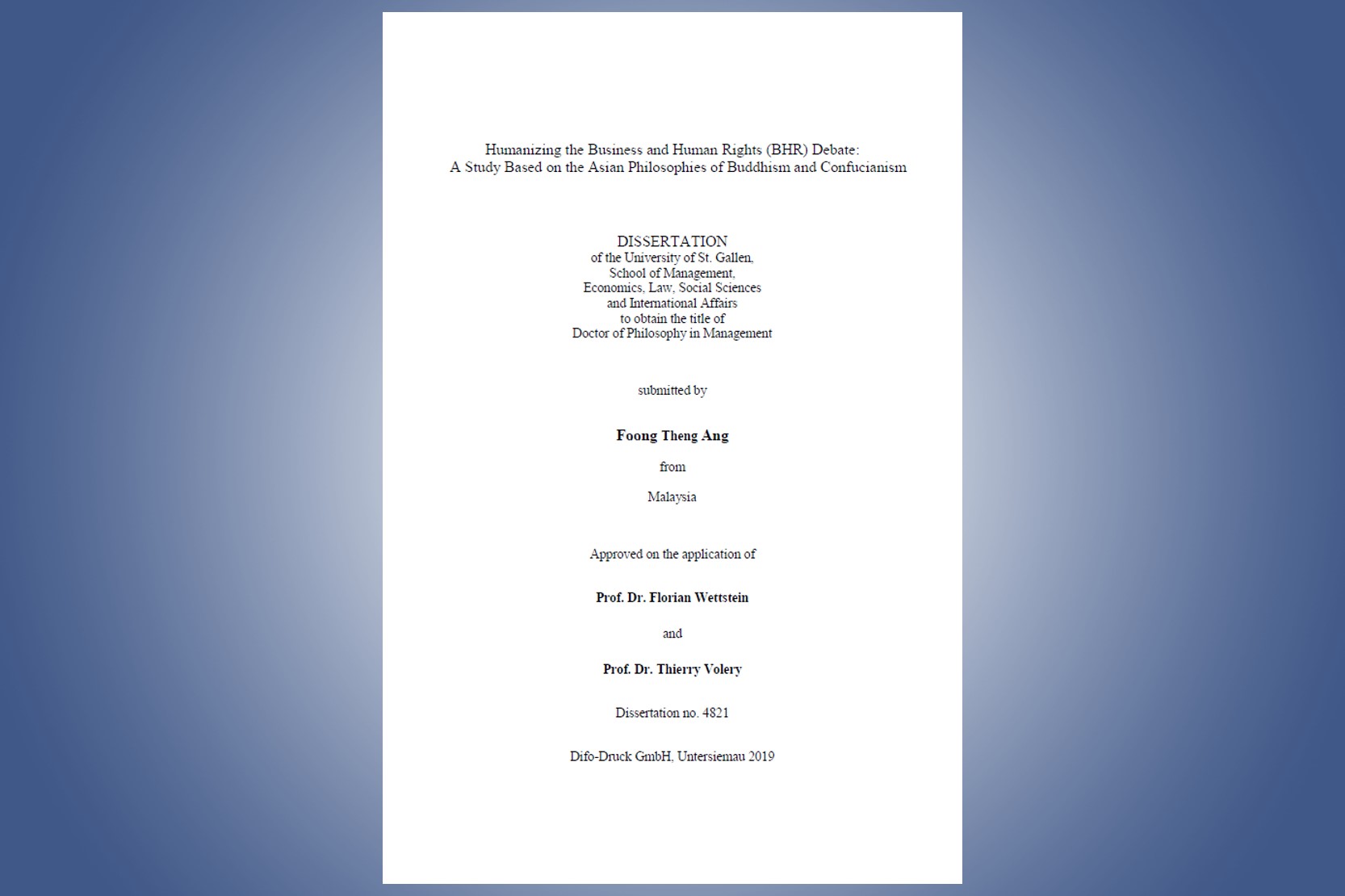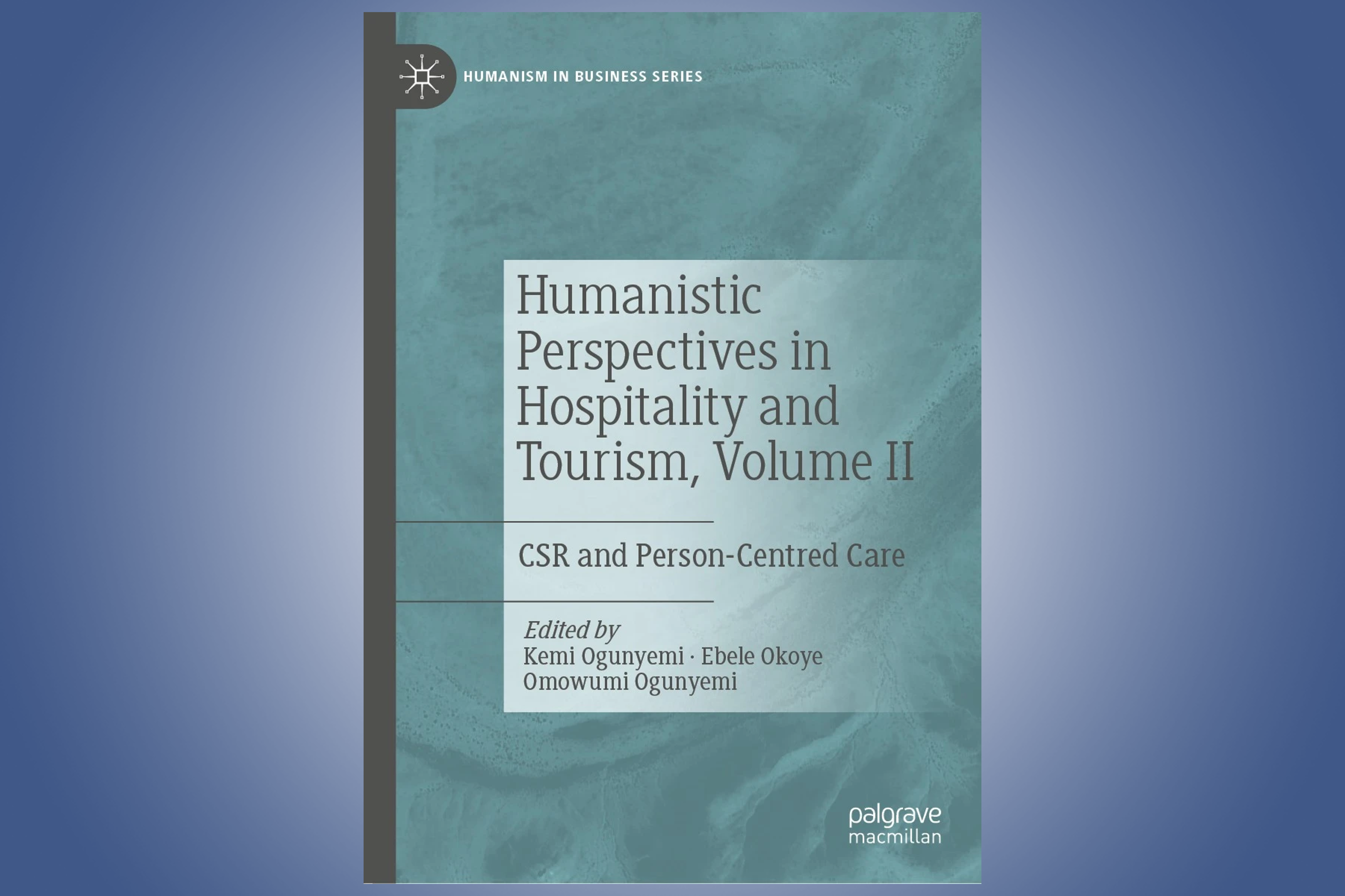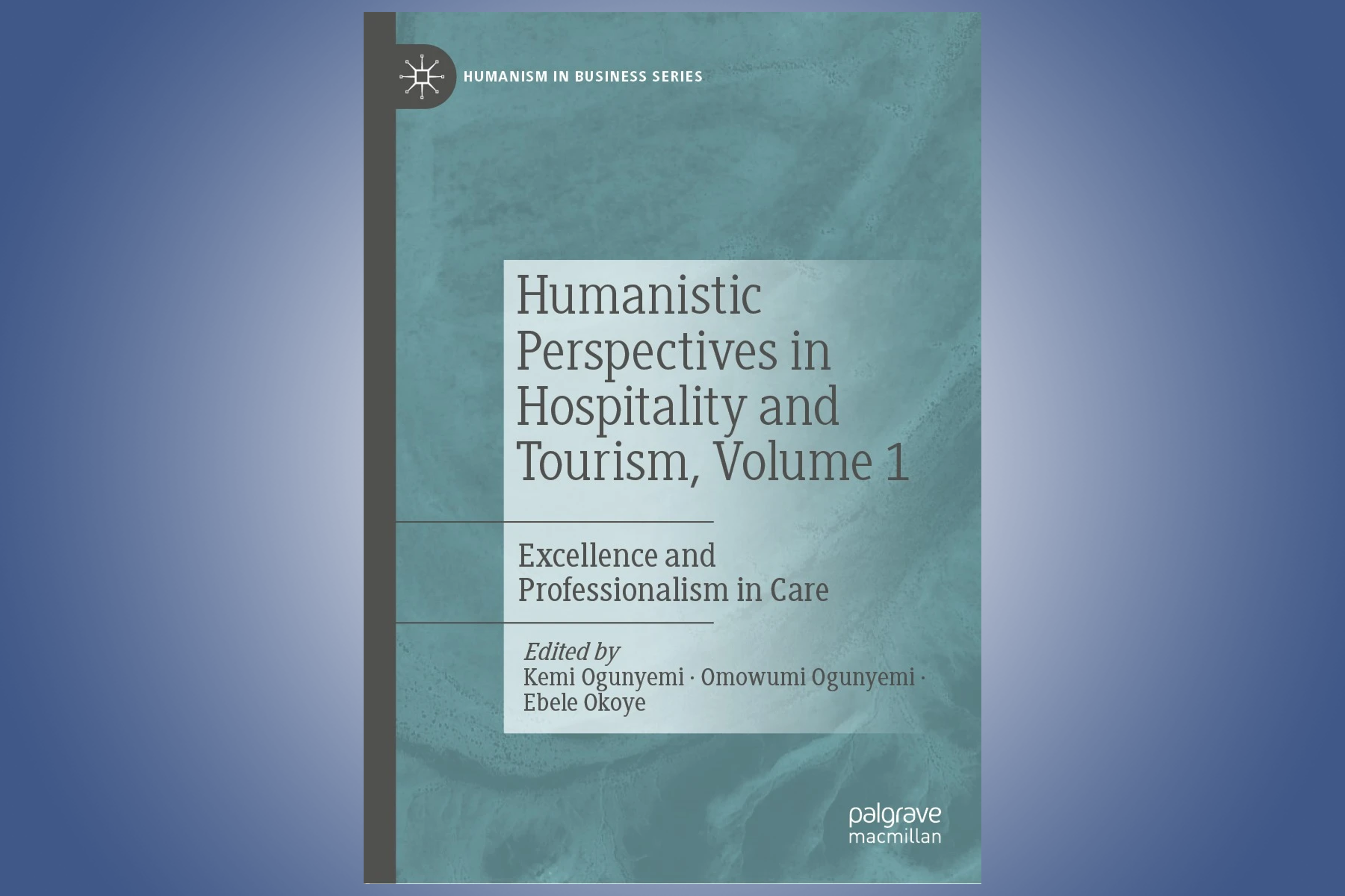Humanizing the Business and Human Rights (BHR) Debate: A Study Based on the Asian Philosophies of Buddhism and Confucianism
The business and human rights (BHR) debate started to attract broad attention after the UN published its “Protect, Respect and Remedy Framework” and the subsequent “Guiding Principles on Business and Human Rights” (GPs) in 2011. Much has happened since then, and the debate, particularly on the implementation of the GPs, has flourished. Consequently, foundational contributions to the BHR debate have become less frequent. This research addresses this widening gap between activities for the implementation of the GPs and the critical reflections of its foundations. Particularly, it deals with the nature and foundation of the corporate human rights responsibility (i.e., why rights should be respected).
Meanwhile, the implementation of the GPs seems to be rather challenging in the Asian context. It is assumed that one of the factors contributing to this is the lack of understanding, or misinterpretations, of the language used to describe the rights due to cultural differences, on which local philosophies would have impacts. This is another aspect the research wishes to examine, with two of the most influential Asian philosophies – Confucianism and Buddhism – serving as the basis of the investigation. Moreover, the study of both streams of thought is essential to providing insights into the foundations of responsibilities to respect human rights. The underlying principle of the humanistic management approach, as proposed by the Humanistic Management Network, is believed to be the common ground that is shared between the languages used to describe human rights, as both streams of thought rest upon the term ‘dignity’. The approach, thus, has potential to advance the BHR agenda in the Asian context. Another aspect of the research deals with the need to humanize the BHR debate. As such, it refers to the debate with an emphasis on respecting human rights (i.e., rights given by virtue of being human) but not on rights given for instrumental reasons (e.g., rights given in compliance with laws).







